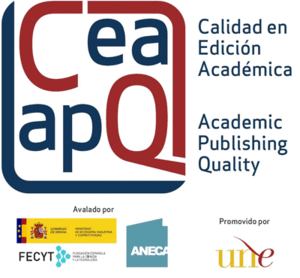The legacy of Ángel-Luis Pujante
A tribute to the pioneering investigations of the Spanish scholar Ángel-Luis Pujante and his commitment to the idea of "foreign" Shakespeare, a Shakespeare who, with or without his language, is capable of meaning many different things to different linguistic and cultural constituencies, the volume brings together the original work of some of the foremost specialists in the field from a variety of European and also Latin American backgrounds. The essays reflect both the manifold nature of Shakespeare's presence in different cultural formations and the range of approaches to the description of that phenomenon. After an introductory essay on Shakespeare and Europe that presents a picture of Shakespeare's status in,and relation to, other cultures on the continent including the UK, the volume is divided into four "fields' of interaction with the writer's work: criticism and commemoration, translation, adaptation and fictionalisation, and stage and performance. While, of course, none of these approaches is exclusive of the others, nor (collectively) do they exhaust the number of possible approaches to Shakespeare's famously elusive work, they at least provide a sample of the rich and varied ways European scholars have engaged with it in recent times. In doing so, they help lay the groundwork for what Pujante and others have long conceived of as a truly European Shakespearean critical heritage.
Preface by the Editors
Notes on Contributors
PART I. Introduction
1. TON HOENSELAARS. “Shakespeare and Europe”
PART II. Criticism and Commemoration
2. ALEXANDER SHURBANOV. The Generic Transmutation of Narrative Components in Shakespeare’s Drama.
3. RUI CARVALHO HOMEM. “The office and devotion of their view”: Gaze and Knowledge in Antony and Cleopatra.
4. ANDREAS HÖFELE. “All’s Well that Ends Well”: Nature and Law in Two Shakespearean Comedies.
5. KEITH GREGOR. Re-locating Race: The Dual Setting in Othello and El valiente negro en Flandes.
6. A. ROBERT LEE. Mind’s Eye: Hamlet and Modernity.
7. LAURA CAMPILLO ARNAIZ. Celebrating Shakespeare in Jerez.
PART III. Translation
8. SALVADOR OLIVA. The Problem of Evil in Macbeth.
9. MARTA GIBINSKA. The First Women Who Dared Translate Shakespeare in Poland:
Wiktoria Rosicka and Maria Su¿kowska.
10. BALZ ENGLER. Between Adulteration and Explanation: On the Origins of an Unusual German Shakespeare Translation.
11. MIGUEL ÁNGEL MONTEZANTI. Selección de sonetos en traducción rioplatense.
PART IV. Adaptation and Fictionalisation
12. MANFRED PFISTER. The King and the Countess, or: Bandello on the Baltic Coast.
13. MANFRED DRAUDT. Adaptations of Adaptations: Austrian Burlesques of Othello from the Early Nineteenth Century to the Present Day.
14. CARLA DENTE. Narration, Conflict, Polyphony: David Greig's Dramaturgical Experimentation.
15. DIRK DELABASTITA. Ian McEwan’s Nutshell under the Most Excellent Canopy of Shakespearean Intertextuality.
16. PAUL FRANSSEN. The King’s Man: Fictions of Jacobean Shakespeare.
PART V. Stage and Performance
17. ISABELLE SCHWARTZ-GASTINE. The Earliest English Travelling Company in France, 1598.
18. JUAN F. CERDÁ. Early Feminist Shrews: Gender Truce in World War I and the Interbellum.
19. CLARA CALVO. Taming the Shrew around Wartime: from Europe to New York.
20. M¿D¿LINA NICOLAESCU. Has Shakespeare Become Political Again?: Recent Romanian Productions.
21. MICHAEL DOBSON. Shakespearean Comedy and the Curse of Realism.
22. MICHAEL HATTAWAY. “For Now a Time has Come to Mock at Form”: What’s Going on in Brexit Britain.
23. BOIKA SOKOLOVA. “High on a stage be placed to the view”: King Lear and Richard II on the London Stage during the Brexit Years, 2016-2018


